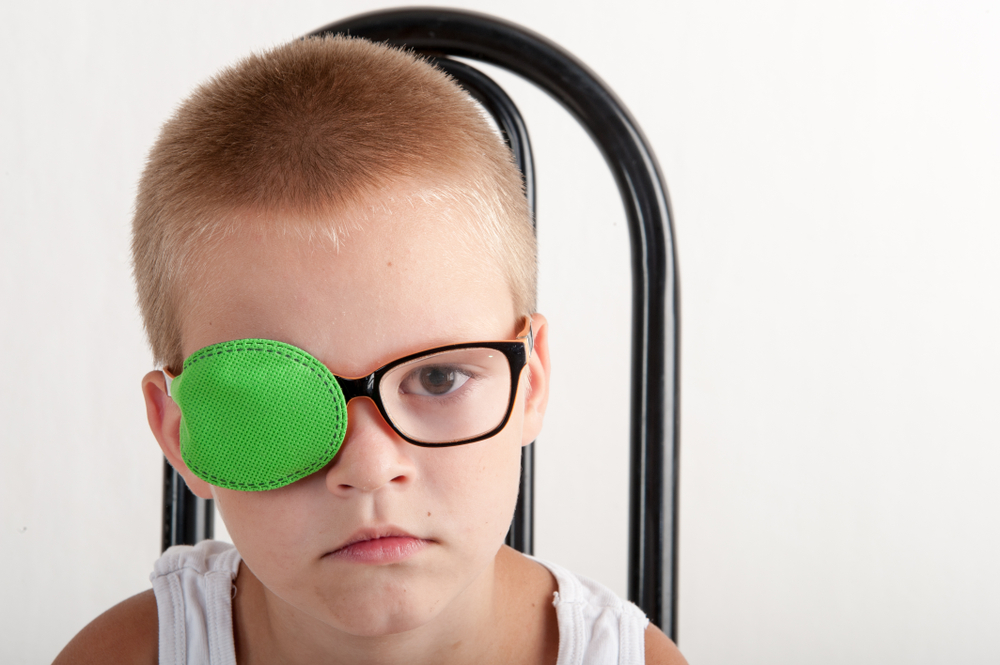If you were to tell an average person that there’s a close correlation between vision quality and overall quality of life, they’d probably shrug and agree without much of an argument. It’s just common sense that having properly functioning sensory organs is a good thing, while having improperly functioning organs could lead to some stress.
Common sense doesn’t cut it in the medical and scientific community, however. In many cases, things that seemed like common sense turned out to not be true at all. It was perfect common sense to people in the past that the sun went around the Earth, but that was dead wrong.
In this case, however, research and data backs up the theory that having properly functioning vision is closely linked to quality of life. Experts at the Association for Research in Vision and Ophthalmology (ARVO) 2021 meeting presented information that plumbs the depths of mental health and vision problems.
We’ll tackle two of these links today: Strabismus and mental health in children, and the strange but apparent link between depression and dry eye disease (DED). Let’s get going.
Strabismus and Mental Health in Children

Dr. Kevin Firl, chief resident at the George Washington University School of Medicine and Health Sciences, shared some surprising information on the prevalence of mental health issues in children suffering from strabismus.
While other studies had been previously conducted on the topic, the studies and demographics involved were limited, so more data was needed. To that end, Dr. Firl organized a large, retrospective cohort study using data from health organizations across the United States.
The study relied on data from TriNetX (Cambridge, Massachusetts, U.S.) to identify patients aged 0-15 with strabismus. For those unfamiliar with the name, TriNetX is a federated electronic health records research network drawing information from multiple health organizations.
This was a big study, comprising 131,413 patients at an average age of 3.7 years. And the data it presented certainly surprised us.
Overall, children who suffer from strabismus have a higher tendency to display any of several mental health disorders, as well as learning disorders, than children without strabismus. These disorders include generalized anxiety disorder, major depressive disorder, attention deficit hyperactive disorder, substance use disorder, adjustment disorder, obsessive-compulsive disorder, post-traumatic stress disorder, anorexia, conduct disorders, and even Tourette’s syndrome. Phew — that’s a lot.
That’s not all, though. Children with strabismus were more than twice as likely to suffer from specific developmental disorders of speech and language, around three times as likely to experience specific developmental disorders of scholastic skills, and even more than twice as likely to be diagnosed with autism.
The main takeaway is this: Strabismus and mental health disorders are highly correlated in children. There are plenty of other links the study established between specific mental health conditions and strabismus as well.
The study doesn’t suggest reasons for the correlation or potential treatments — that’ll be up to future studies to investigate. But Dr. Firl has done some valuable work here in providing statistical evidence showing that strabismus should be taken seriously for its potential mental health risks. Later studies will have to do more heavy lifting in determining just what can be done about it, but this is an excellent start.
Depression and Dry Eye Disease

While depression and DED may not seem like likely partners in crime, they in fact are. The mechanisms between the two conditions are not well understood just yet, but one thing is clear: Patients who suffer from depression and moderate to severe DED had worse DED symptoms than patients without depression.
Dr. Yi Zhou, from the Perelman School of Medicine at the University of Pennsylvania, presented data from the Dry Eye Assessment and Management (DREAM) study. In a way, we’re left with a chicken-and-the-egg question: Does DED cause depression, or does depression lead to DED?
It could work both ways. Dr. Zhou noted in her conclusions that depression may influence DED, rather than the other way around. Common sense might also suggest that the quality of life impacts of DED may lead to depression, but more data is needed to reach that conclusion.
Interestingly, one Polish study from 2013 indicated that antidepressants themselves may be a cause of DED.¹ A Turkish study from 2015 came to the same conclusions, pointing out that extended use of antidepressants may be a risk factor for DED.².
For now, researchers are on the right track in finding a correlation between these two conditions. But finding the exact mechanism between such complex and multifactorial conditions as depression and DED will certainly be no easy task. Now that the medical community has a bit of purchase on the topic, though, we can expect forthcoming findings and explanations — as long as the funding from the research keeps up.
References
1: Mrugacz M, Ostrowska L, Łazarczyk-Kirejczyk J, et al.. Zespół suchego oka u pacjentów leczonych lekami antydepresyjnymi [Dry eye disease in patients treated with antidepressants]. Klin Oczna. 2013;115(2):111-4.
2: Koçer E, Koçer A, Özsütçü M, Dursun AE, Krpnar İ. Dry Eye Related to Commonly Used New Antidepressants. J Clin Psychopharmacol. 2015 Aug;35(4):411-3.



